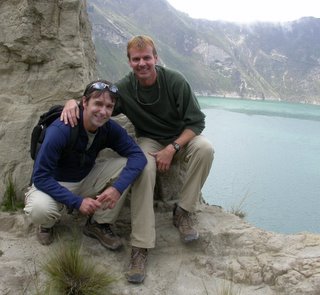book notes
Religion is -- because it claims a special divine exemption for its practices and beliefs -- not just amoral but immoral
G.K. Chesterton: if people cease to believe in God, they do not believe in nothing but in anything.
George Orwell: a totalitarian state is in effect a theocracy, and its ruling caste, in order to keep its position, has to be thought of as infallible
In The Future of the Illusion, Freud describes the religious impulse as essentially ineradicable until or unless the human species can conquer its fear of death and its tendency to wish-thinking. All that the totalitarians have demonstrated is that the religious impulse -- the need to worship -- can take an even more monstrous forms if it is repressed.
North Korea is a debased form of Confucianism and ancestor worship.
PETER BERKOWITZ: Mr. Hitchens mocks the crudity of the biblical principle known in Latin as lex talionis, or an "eye for an eye, a tooth for a tooth, a hand for a hand, a foot for a foot." But suppose, as Jewish teaching suggests, that the biblical principle put an end to the practice of taking a leg for a foot and a life for an eye, and in its place established a principle that, though differently interpreted today, remains a cornerstone of our notion of justice -- that the punishment should fit the crime.
Similarly, Mr. Hitchens heaps scorn on the biblical story of Abraham's binding of Isaac, in which, at the last moment, an angel stays Abraham's hand. What kind of barbarian, wonders Mr. Hitchens, would prepare to sacrifice his son at God's command, and what kind of morally stunted individuals would honor such a man, or the deity who made the demand? Yet Mr. Hitchens's categorical claim that religion poisons everything is undermined by the common interpretation according to which God's testing of Abraham taught, among other things, that the then widespread practice of child-sacrifice was contrary to God's will, and must be put to an end forever.
At the same time, Mr. Hitchens has next to nothing to say about the historical role of religion, particularly Christianity, particularly in America, in nourishing the soil in which our widely and deeply shared beliefs in liberty, democracy and equality took root and grew strong -- a subject dealt with perceptively by Yale professor of computer science David Gelernter in his recent book "Americanism: The Fourth Great Western Religion."
Mr. Hitchens anticipates that critics will point to those crimes against humanity, dwarfing religion's sins, committed in the name of secular ideas in the 20th century. He attempts to deflect the challenge with sophistry: "It is interesting to find that people of faith now seek defensively to say that they are no worse than fascists or Nazis or Stalinists." But who is behaving defensively here? Mr. Hitchens is the one who unequivocally insists that religion poisons everything, and it is Mr. Hitchens who holds out the utopian hope that eradicating it will subdue humanity's evil propensities and resolve its enduring questions.
Nor is his case bolstered by his observation that 20th-century totalitarianism took on many features of religion. That only brings home the need to distinguish, as Mr. Hitchens resolutely refuses to do, between authentic and corrupt, and just and unjust, religious teachings. And it begs the question of why the 20th-century embrace of secularism unleashed human depravity of unprecedented proportions.


<< Home